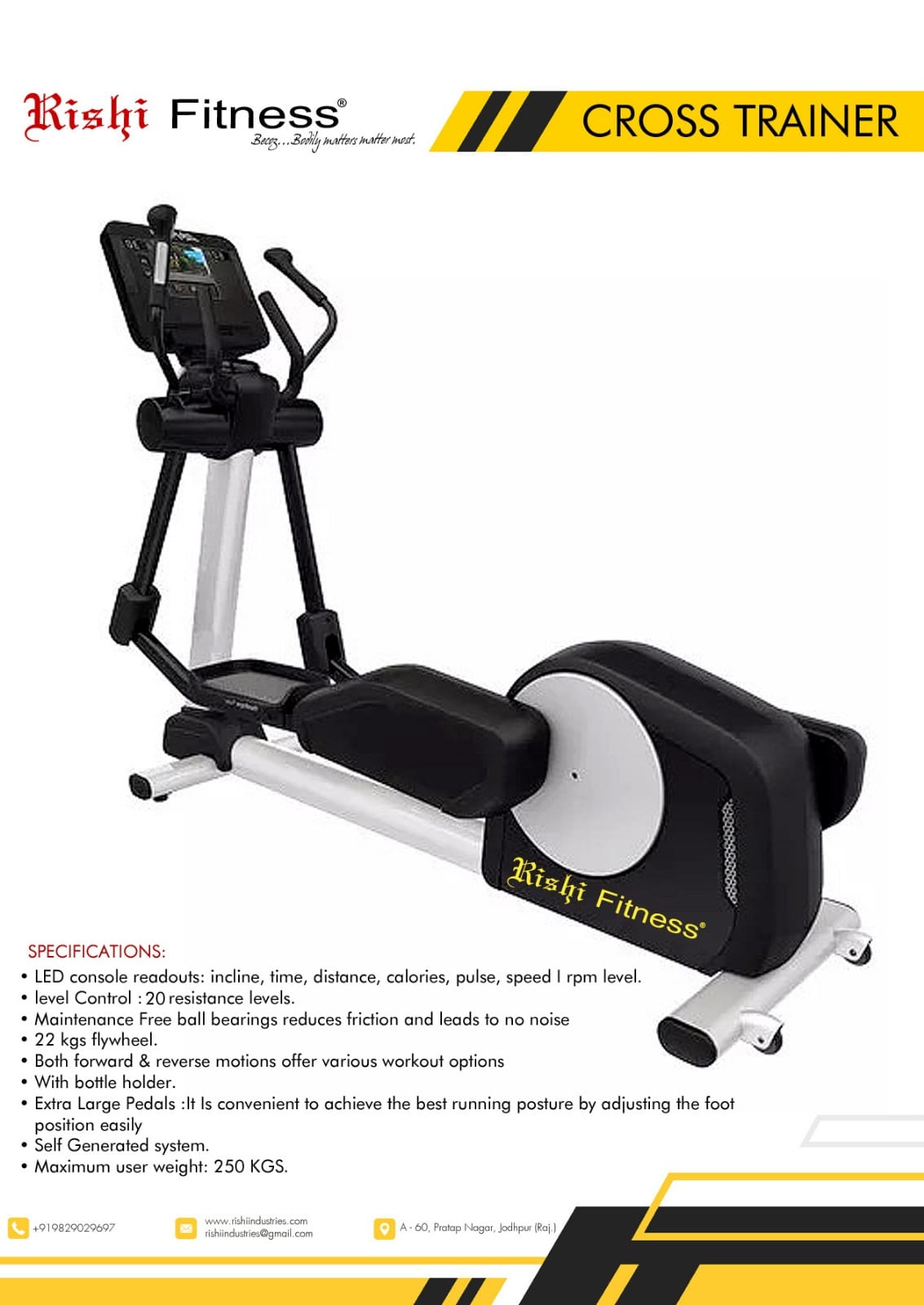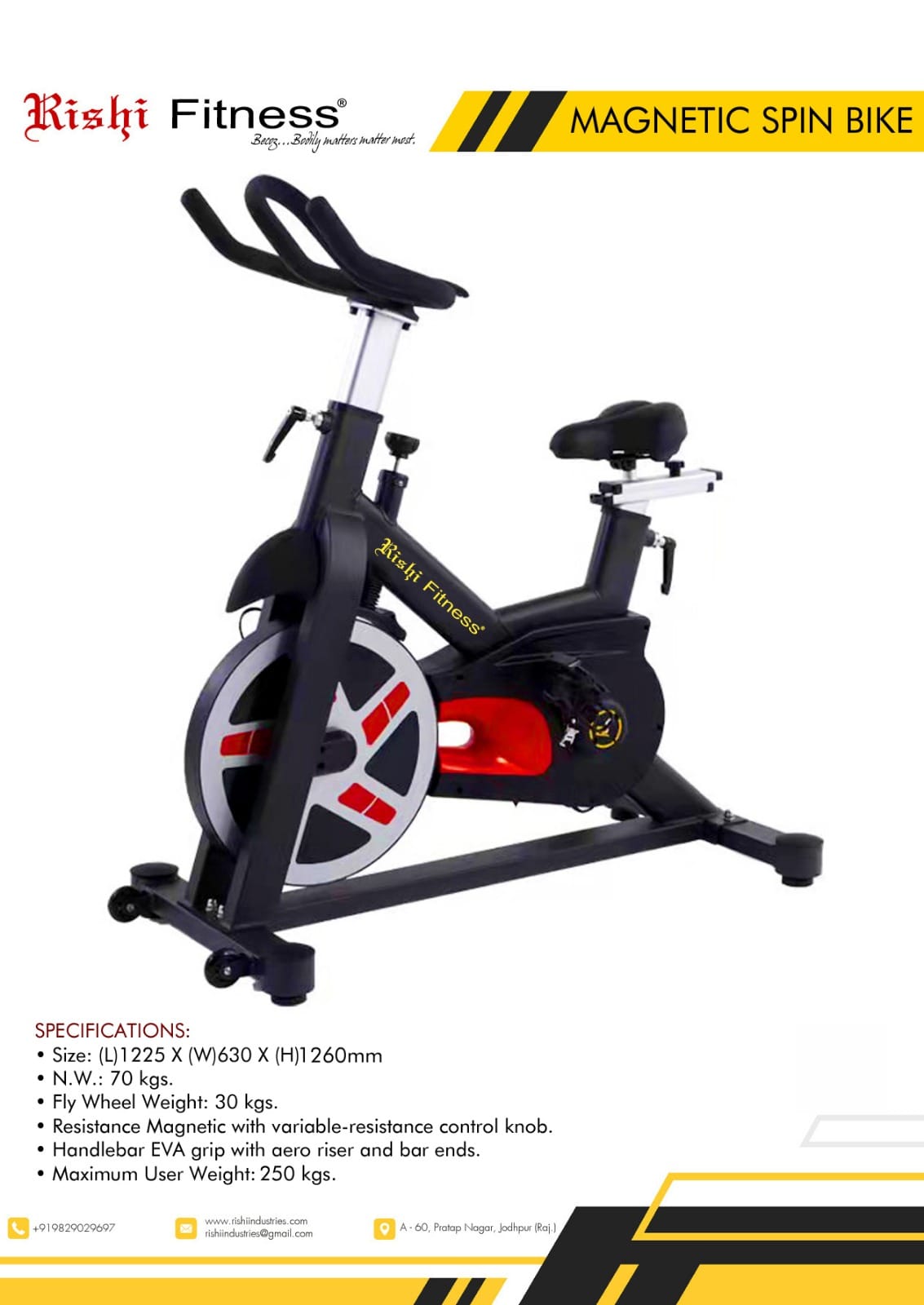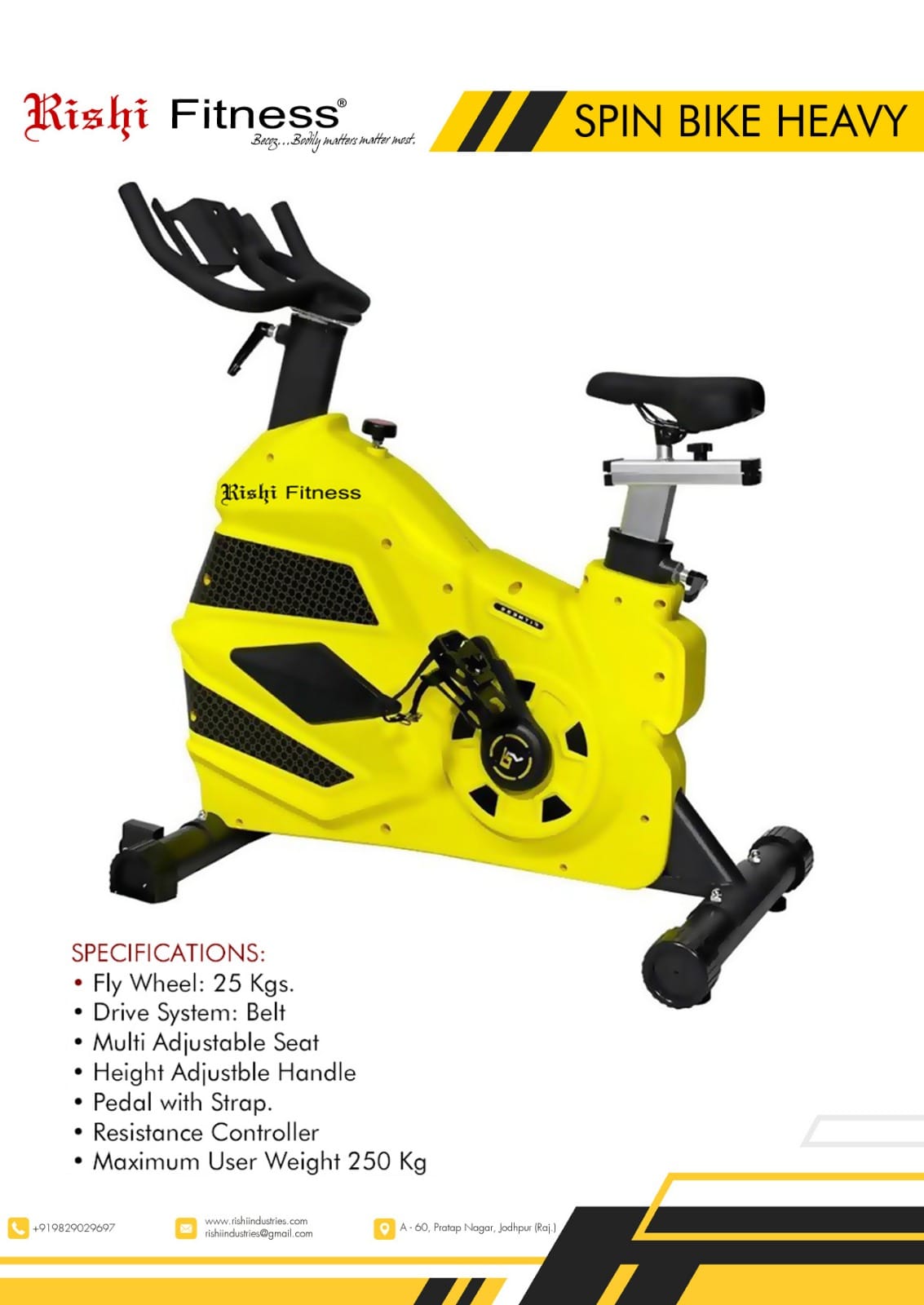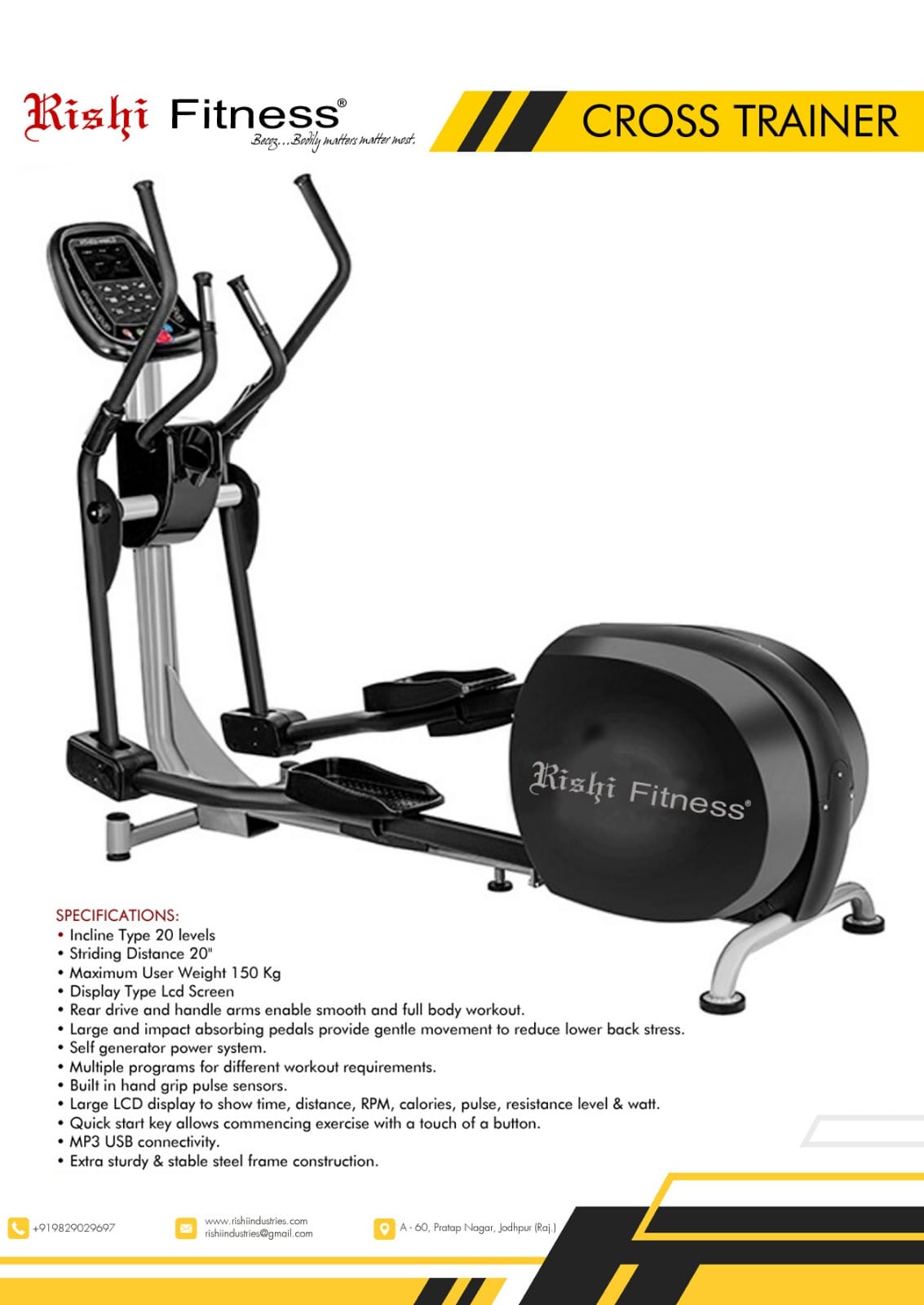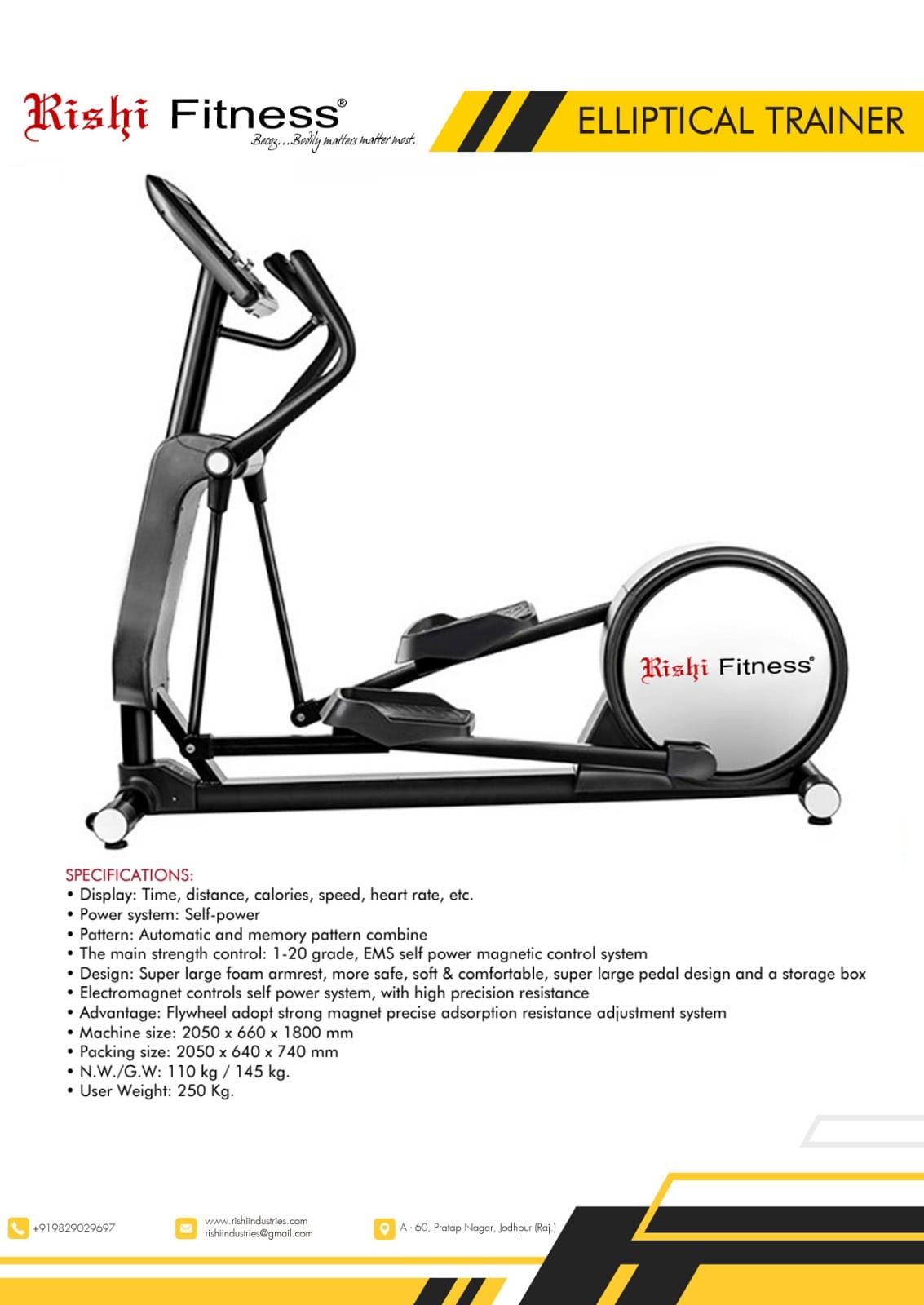Description
Product details
When it comes to commercial gym ellipticals and cross trainers, there are several factors to consider, including durability, functionality, comfort, and features. Here’s a breakdown of what these machines offer and what to look for when choosing them for a commercial setting: Ellipticals Ellipticals are low-impact cardiovascular machines that provide a full-body workout by combining the motion of running, walking, and stair climbing. They are typically used for improving cardiovascular health and burning calories. In a commercial gym, they are popular because they are gentle on the joints and suitable for a variety of fitness levels. Key Features of Commercial Ellipticals: Heavy-duty Construction: Commercial ellipticals are built to withstand high usage, with durable frames and components. Adjustable Resistance: Most commercial ellipticals have adjustable resistance and incline, allowing users to customize the intensity of their workouts. Stride Length: A longer stride length (around 20–22 inches) is often preferred for a more natural motion, especially in a commercial gym setting with users of various sizes. Ergonomic Handles: Some ellipticals offer moving handles for a full-body workout, while others have stationary handles for a focus on the lower body. LCD/Touchscreen Displays: High-end models often feature interactive screens with workout programs, heart rate monitoring, and connectivity to fitness apps. Noise Level: Commercial-grade ellipticals are designed to operate quietly, an important feature for gyms with a lot of foot traffic. Top Brands for Commercial Ellipticals: Precor: Known for their smooth and durable ellipticals. Their models are built to last with commercial-grade warranties. Life Fitness: Life Fitness offers high-quality ellipticals with customizable options and advanced features. Matrix Fitness: Known for their durable and highly efficient ellipticals with integrated technology and workout programs. Cross Trainers Cross trainers are similar to ellipticals but tend to have more flexibility in terms of movement. They often combine the functionality of an elliptical, stationary bike, and stair climber into one machine. Cross trainers provide a full-body workout that can be adjusted for different intensities. Key Features of Commercial Cross Trainers: Multiple Motion Types: Cross trainers often feature adjustable motion patterns, so users can switch between walking, running, cycling, and climbing movements. Full-Body Engagement: Cross trainers engage both the upper and lower body at the same time, providing a higher-intensity workout than standard ellipticals. Advanced Features: Many cross trainers come with built-in heart rate monitors, touchscreens, and integration with fitness tracking apps. Adjustable Incline and Resistance: Most models offer varying levels of incline and resistance, allowing users to tailor their workouts. Space-Efficiency: Some cross trainers are more compact than traditional ellipticals and can be a better fit for gyms with limited space. Top Brands for Commercial Cross Trainers: Sole Fitness: Offers cross trainers with heavy-duty frames and advanced features, known for their smooth operation. Cybex: Known for their advanced cross trainer designs, Cybex models focus on ergonomic design and user comfort. Technogym: High-quality cross trainers that focus on both functionality and style, offering advanced tracking and personalized workout programs. Choosing Between Ellipticals and Cross Trainers for a Gym Ellipticals are typically more suited for individuals looking for low-impact cardio workouts that focus on endurance, while cross trainers are better for those who want a more varied workout, incorporating multiple types of movements. Cross trainers might be ideal for larger gyms that want to offer versatility to their clients, whereas ellipticals are more traditional and popular in many gyms due to their simplicity and ease of use. Both types of machines are available with commercial-grade features like heavy-duty frames, quiet motors, and ergonomic designs. Maintenance and Service Commercial Warranty: Ensure that the elliptical or cross trainer has a strong warranty that covers parts and labor, especially since these machines will be used frequently in a commercial setting. Ease of Maintenance: Look for machines that are easy to clean and maintain. Regular servicing should be a part of your gym's routine to avoid breakdowns. Price Considerations Commercial ellipticals and cross trainers are often priced higher than home-use models, but they are built for long-term durability and heavy usage. Expect to pay anywhere from $2,000 to $8,000 per machine, depending on the brand, features, and technology.


